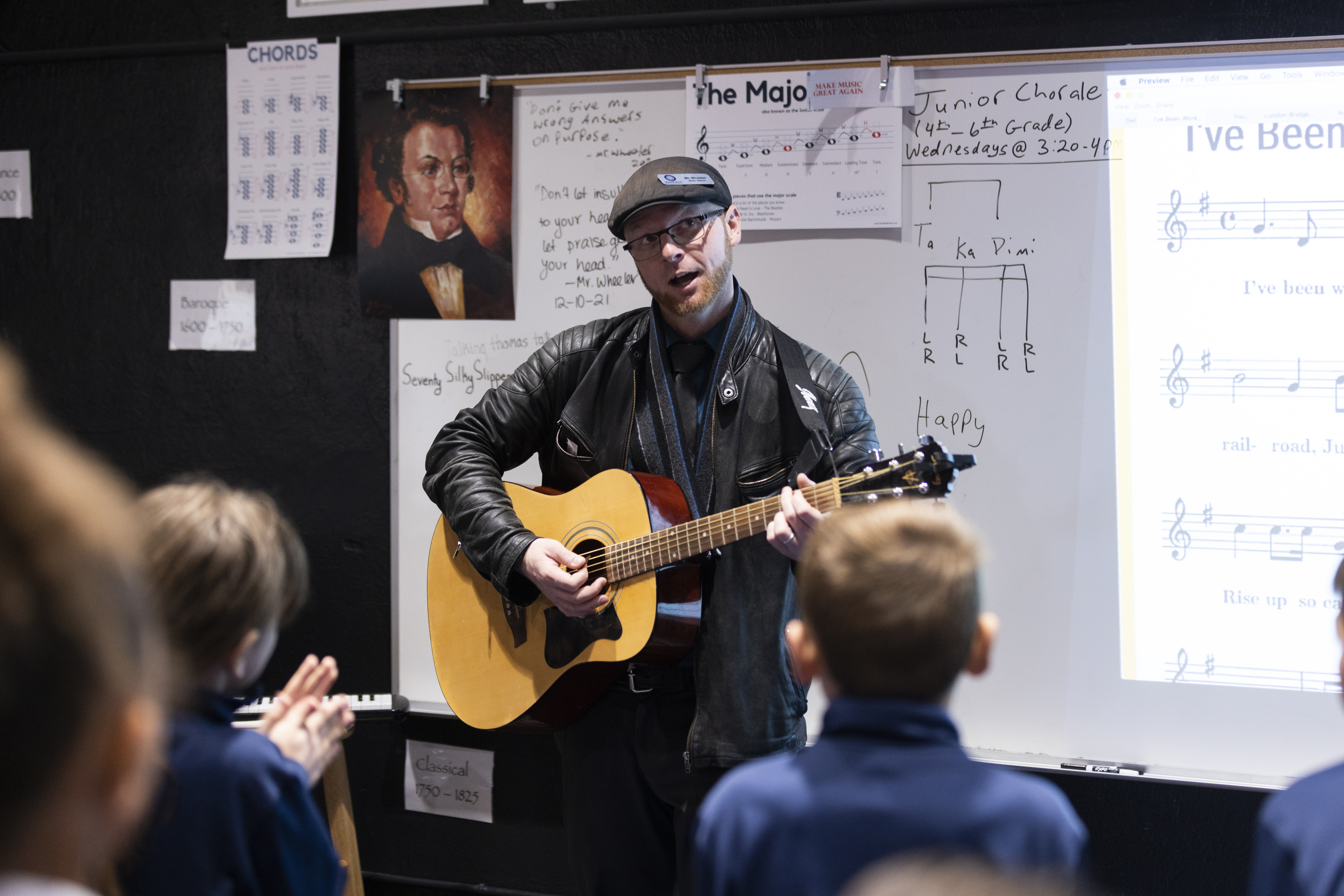In a recent Second Grade class period, I was teaching the American folk song “Buffalo Gals.” Many of the students were familiar with it through its use in the well-known film “It’s a Wonderful Life,” and I worked very hard to emphasize the fact that this song has endured for a few generations. It is a song that has endured, as most folk songs do, not merely because the tune captures your ear, but because it captures a little piece of humanity.
As the boys prepared to “repeat after me” the opening lines of the second verse:
“She was the prettiest gal I’d seen in my life, seen in my life, seen in my life
And I wished to the Lord she’d be my wife and we would part no more,”
I could see that they weren’t happy about singing this. I get it – they’re seven years old! But I also had the chance to explain to them that folk songs are like a dress rehearsal. Here’s why I think so.
Dress rehearsals are an opportunity for actors and singers to don a costume and go through the routine of a performance without the pressure of an audience; they are complete with wrestling through difficult lines, movements, technical surprises and malfunctions, and your own responses to the performance. It helps you process the actual performance better, because you know what it’s like to experience the performance and you’ve wrestled with the accompanying difficulties before they became overwhelmingly difficult!

Folk songs are an opportunity for members of the culture to don a persona and go through the routine of a life situation without the pressure of its impact on the future; they are complete with wrestling through difficult words and thoughts, emotional progressions, stream of consciousness interruptions, and your own responses to the ideas that others have shared. It helps you process the actual routine of life better, because you know what it’s like to experience the situation and you’ve wrestled with the accompanying difficulties before they became overwhelmingly difficult!
In other words, a seven year old ought to learn “Buffalo Gals,” because some day he’ll be walking down a street. He’ll see “a pretty little girl [he] chanced to meet” and he’ll “wish to the Lord she’d be [his] wife and [they] would part no more.” But because he knows someone else felt that way and had butterflies in their stomach and walked up to that girl and asked her to “dance by the light of the moon,” he may feel a little less alone and a little more prepared for that reality.
Because folk songs are beautifully crafted, time-tested and -refined dress rehearsals for real life.
